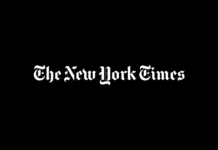1. The Trump administration is expanding migrant detention centers along the border.
Border officials will spend nearly $40 million to build two new tent cities in Texas to handle some of the surge of migrants — more than 4,000 in a single recent day, according to the new acting secretary of Homeland Security, Kevin McAleenan.
Mr. McAleenan spoke in McAllen, Tex., where he met with border agents.
On Tuesday, Attorney General William Barr issued an order that could keep thousands of asylum seekers in jail indefinitely. Above, a detention center in Los Fresnos, Tex.
2. This time tomorrow, we expect to be unpacking the redacted version of the special counsel’s report.
The release appears to be coming in the morning, possibly after Attorney General William Barr holds a news conference at 9:30 a.m. Some of the findings won’t be news to President Trump: Justice Department and White House officials discussed Robert Mueller’s findings several times in recent days.
We’ll have real-time excerpts and analysis. Here’s our advance guide.
Congressional Democrats, reporters and many Americans will make a beeline to the section that addresses why the special counsel decided not to draw a conclusion about whether President Trump obstructed justice — a gap Mr. Barr filled with his own determination that the president had not.
3. A Florida teenager “infatuated” with the Columbine school shooting was found dead of a self-inflicted gunshot, ending a massive police hunt during which hundreds of Denver-area schools were closed.
The authorities said Sol Pais, 18, had traveled to Denver for a “pilgrimage” to Columbine, just days before the 20th anniversary of the mass shooting at the high school. Officials said she had bought a shotgun and ammunition after arriving in Denver and expressed concerns about her mental stability. Here’s what we know about her.
Gun violence is a major public health issue, but political pressures have limited research into it. That is starting to change: Gun research is on the rise.
_____
4. An international suicide is also in the news.
Former President Alan García of Peru shot himself in the head as the police tried to arrest him in connection with one of the biggest corruption scandals in Latin American history. Above, Mr. García during his inauguration in 2006.
Separately, Sudan’s former president Omar Hassan al-Bashir, who ruled for three decades until his ouster last week, has been moved to a prison in the capital, Khartoum. He is wanted by the International Criminal Court for charges of genocide, war crimes and crimes against humanity.
5. Days after a fire devastated Notre-Dame cathedral, France is shifting its focus to reconstruction.
Individuals, companies and institutions have so far donated or pledged some 850 million euros, almost $1 billion, to the cause. But the spectacle of French billionaires trying to outdo one another with gifts that may win them tax breaks quickly intensified resentments over inequality that have flared during the Yellow Vest movement.
We built an interactive graphic that shows the inside of Notre-Dame’s attic, where the fire started, to illustrate why the building was so susceptible to fire.
_____
6. We have profound news from our science desk.
Researchers at Yale University removed the brains from 32 dead pigs and, hours later, restored cellular activity to them. A bioethicist called the brains “partly alive.”
The study overturns long-held assumptions about brain death, and raises questions about the line between life and mortality. (We did say it was profound.)
Separately, we also reconstructed the case of a Chicago woman who died from Candida auris — a rare portrait of a drug-resistant infection that’s been appearing around the world, but that few institutions have publicly discussed.
_____
7. They glued themselves to the top of a London commuter train, above, staged a group yoga class on a major bridge and occupied major landmarks. Hundreds were arrested.
It was all part of a global civil disobedience campaign demanding immediate government action on climate change. The London protesters have been going strong for three days. They have no plans to stop.
And if you missed it in today’s Morning Briefing, our reporter and photographer explored how glacial melting in North America is affecting the natural world.
_____
8. Uber versus Lyft: We settled the argument so you don’t have to.
Lyft’s I.P.O. and Uber’s plans for one prompted our tech columnist to focus on the consumer’s bottom line in ride-hailing. Here’s his comprehensive comparison. His conclusion: For now, Uber has the edge.
We also sat down with Susan Wojcicki, the chief executive of YouTube. She may be the most measured person in tech, running the most chaotic place on the internet.
9. Can a Greek tragedy help heal a scarred city?
Our reporter spent a week on the ground with the provocative stage director Milo Rau, who brought together European and Iraqi actors for a take on “The Oresteia” set in Mosul. And she saw how reality challenged Mr. Rau’s assumptions of how classics can be reconceived. Above, actors staged the death of Agamemnon outside a bombed-out arts building.
“We do not need to act a tragedy,” said one young actor. “This play is just talking about the reality of Mosul.”
_____
The film, our critic says, reinforces the idea that Beyoncé the performer is also Beyoncé the creator:
“It’s Beyoncé exactly as she wants us to see her and has always wanted us to see her: as a perfectionist, and as the hardest-working person in show business.”
Have a buzzworthy night.
_____
Your Evening Briefing is posted at 6 p.m. Eastern.
And don’t miss Your Morning Briefing. Sign up here to get it by email in the Australian, Asian, European or American morning.
Want to catch up on past briefings? You can browse them here.
What did you like? What do you want to see here? Let us know at briefing@nytimes.com.
Source : Nytimes











